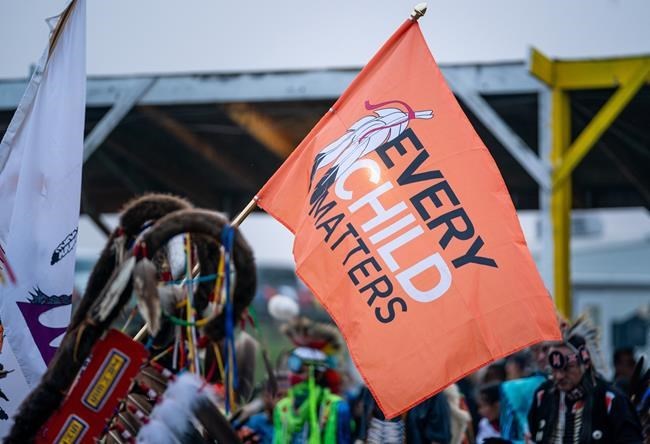OTTAWA — Canadian Catholic leaders say they are almost halfway to their fundraising goals for a reconciliation fund formed after the church failed to meet previous financial obligations.
The Canadian Conference of Catholic Bishops held its annual meeting in Toronto this week, where church leaders were told the Indigenous Reconciliation Fund has raised $11.5 million so far, nearly 40 per cent of its goal.
The Canadian bishops made a commitment in 2021 to raise $30 million in up to five years. They expect to raise at least $14 million by the end of the year.
The Catholic Church was under pressure to properly compensate survivors under the Indian Residential School Survivor Agreement after it was reported that less than $4 million had been raised out of a $25-million goal.
Forty-eight Catholic church entities had signed on to fundraise through "best efforts" as part of the compensation package under the settlement that was struck in 2006 with Ottawa, former residential school students and Indigenous leaders.
Despite not coming close to that goal, a Saskatchewan judge ruled in 2015 that the churches could walk away from their remaining financial obligations.
An estimated 150,000 First Nations, Inuit and Métis children were forced to attend residential schools. More than 60 per cent of the schools were run by the Catholic Church.
The Truth and Reconciliation Commission, which was formed through the settlement agreement between survivors and the federal government, documented and studied the legacy of residential schools. The commission found physical and sexual abuse, cultural destruction, poor education, malnutrition and widespread illness.
The discovery of possible unmarked graves at the sites of former residential schools in recent years, as well as Pope Francis's apology to Indigenous People, shone a fresh spotlight on the failures of the Catholic fundraising efforts related to the settlement.
At the end of a six-day visit across the country last year, the Pope said the abuses faced at residential schools amounted to genocide.
Many Catholics and church leaders across Canada voiced a new commitment to reconciliation and repairing the relationship with Indigenous Peoples.
The Canadian Conference of Catholic Bishops has said it are fully committed to addressing the historical and ongoing trauma. While the Canadian bishop organization was not party to that original agreement, it said it learned lessons from and "recognized shortcomings" in that campaign.
It prompted the Canadian bishops to establish the Indigenous Reconciliation Fund and appoint Indigenous board members to oversee the $30-million target, which it has pledged to reach by January 2027.
The bishops said there have been fundraising efforts from local diocese and parishioners, including some through yearly fundraising drives, while other monies have come from churches directly.
Some jurisdictions "have made a decision that they have certain assets — maybe not land or buildings — but funding that they themselves have recognized can be directed to this fund for healing and reconciliation," said Bishop William McGrattan, president of the Canadian Conference of Catholic Bishops.
"I have every confidence that the fund at the end of December will have $14 million," he said at a press conference Thursday.
McGrattan said he he expects the $30 million goal to be met by deadline.
The bishops have said there are four priorities for distributing the money: healing and reconciliation; culture and language revitalization; education and community building; and dialogues for promoting Indigenous spirituality.
The fund was registered as a charity last year and approved its first project proposal soon after. The conference says projects that receive funds are determined locally in consultation with First Nations, Métis and Inuit Peoples
Sixty projects have been approved for funding so far, including for cultural camps used to reclaim languages and spiritual practices.
This report by The Canadian Press was first published Sept. 28, 2023.
Kelly Malone and Alessia Passafiume, The Canadian Press



